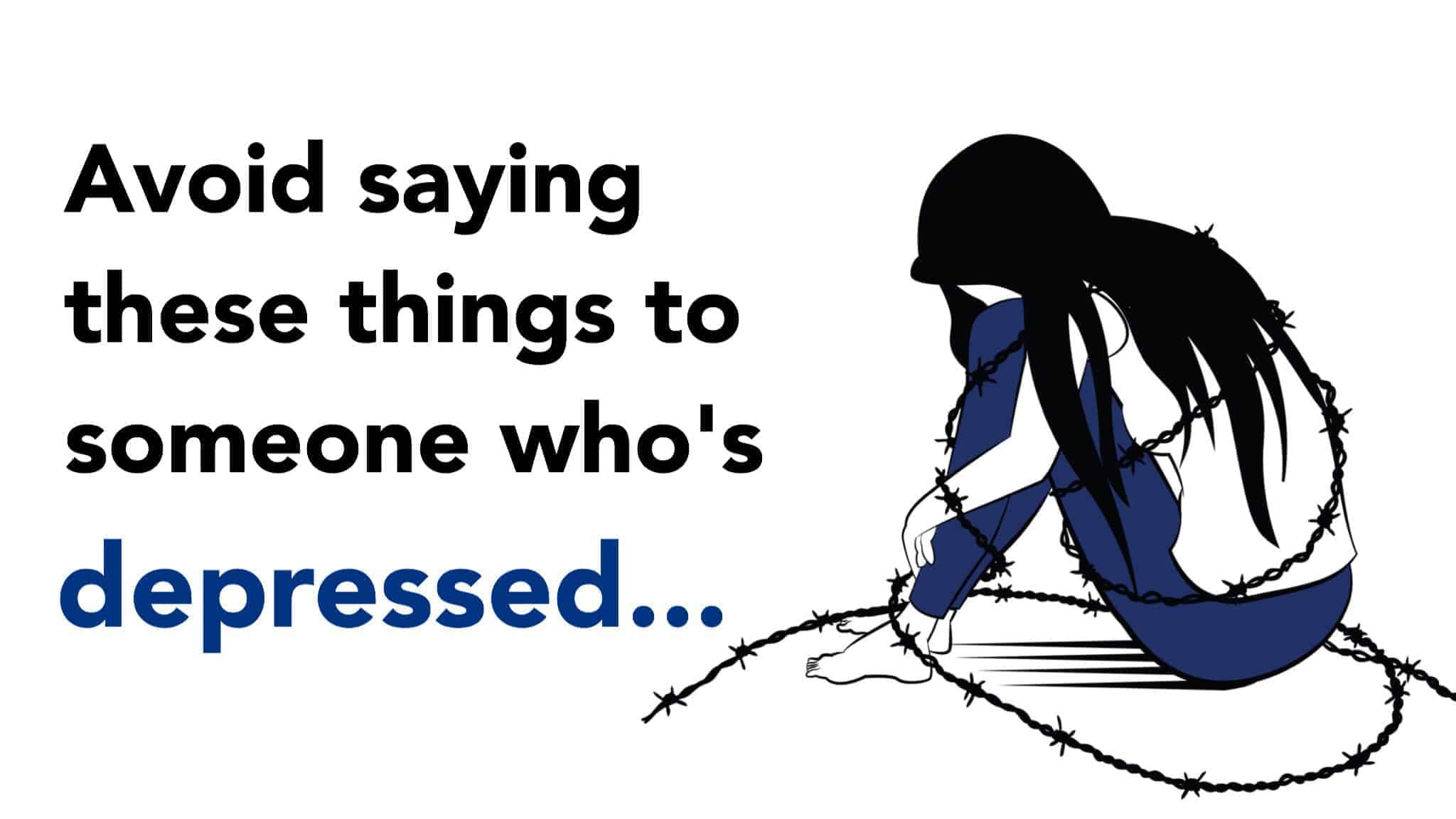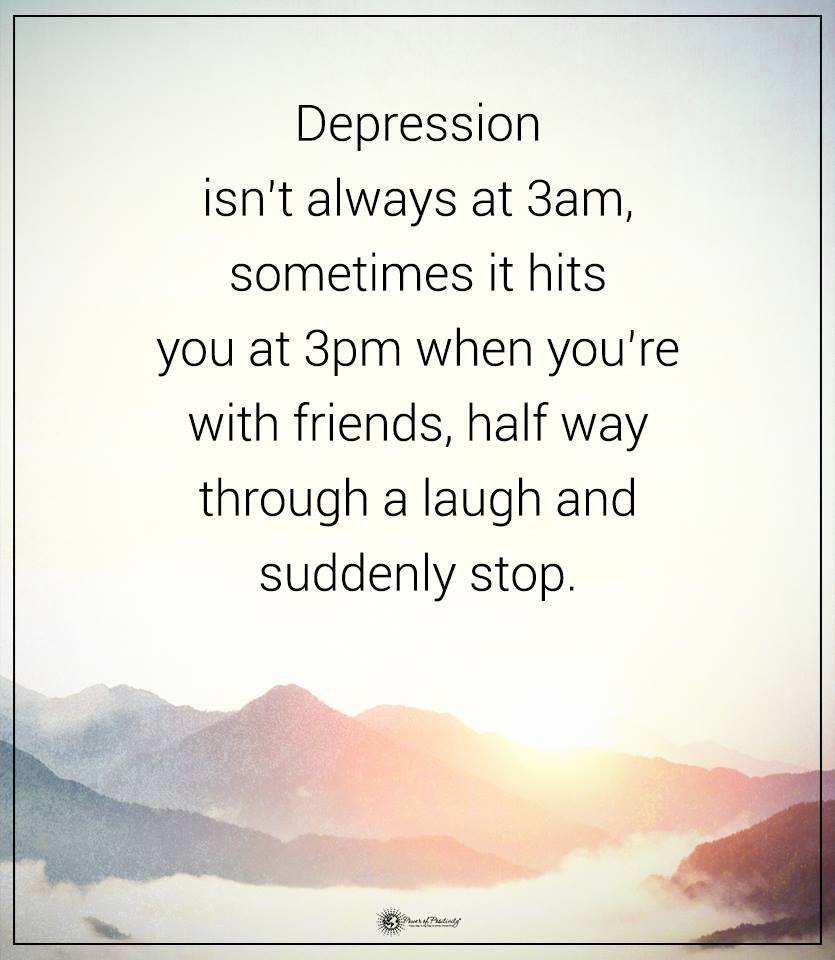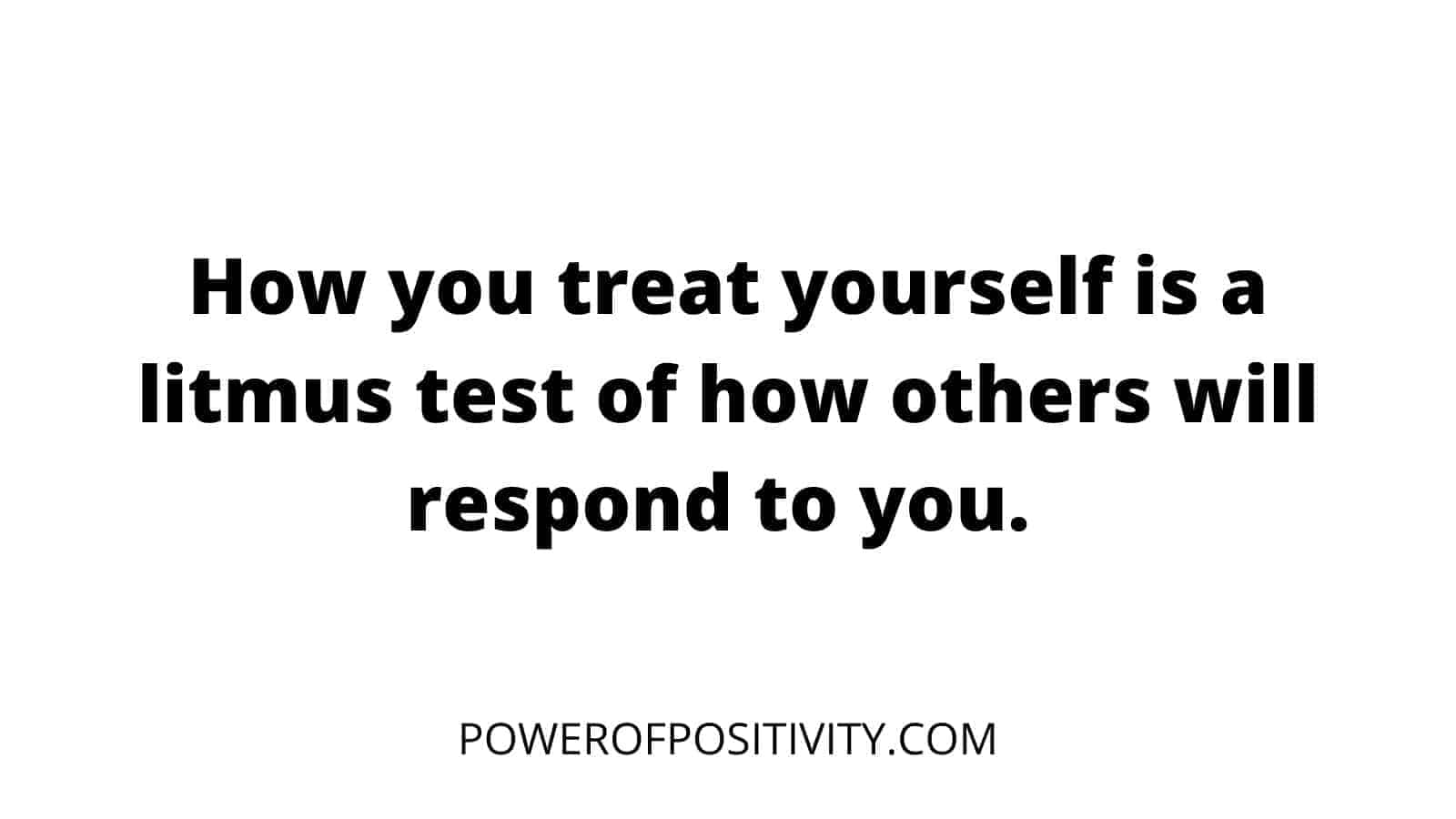Depression hits hard and can linger for long periods if left untreated. It’s the overwhelming sense of sadness, gloom, and doom. This mental disorder is debilitating, as it paralyzes the person into withdrawal and stress and can contribute to suicidal thoughts. These “blue moods” can turn into serious disorders that require treatment. Depression may also be a symptom of some other mental health issues.
Depression exists if you have at least five of the following symptoms for at least two consecutive weeks:
- A depressed mood during most of the day. You might especially notice it in the morning
- Fatigue or less energetic almost daily, or at least several days per week
- Feeling worthless or guilty almost every day
- Impaired concentration or indecisive
- Insomnia (the inability to sleep) or hypersomnia (sleeping excessively) almost every day
- Marked diminished interest or pleasure in most daily activities
- Recurring thoughts of death or suicide (no fear of death)
- A sense of being slowed down
- Restlessness
- Unintentional and noticeable weight loss or weight gain
This mental illness is not a joking matter. The last thing anyone needs, suffering from this mental disorder is uncalled-for suggestions or sarcastic remarks. You might think you are helping by insensitive remarks, but they do not help.
8 Things Never to Say to Someone Who Struggles With Depression
Here are eight things you should avoid saying to someone suffering from depression:
1. “Will you snap out of it already?”
This statement dismisses the mental disorder. It makes the person feel as if he or she is feeling sorry for themselves. It forces the person encountering the sadness to introspect and withdraw from others. No one wants to be a burden to anyone.
What to say instead: “Would you like to talk about what you’re going through?” Offer a listening ear and encourage them to share their thoughts and feelings.
2. “It’s all in your mind.”
In our society, we have been ingrained with the stigma of mental illness as a considerable dysfunction. We are bombarded with the media’s constant scrutiny and negativity about depression, anxiety and other disorders. Even though millions of folks suffer from one sort of mental disorder, we are still incapable of being sensitive. We see mental illness/disorder as a sign of weakness. Saying this to a person is degrading their ability to feel emotions. You are letting them know that they are making things up.
What to say instead: “I’m here for you.” Let them know that you will support them no matter what.
3. “I thought you were stronger than this.”
Usually, those who make these types of comments are folks who, themselves, avoid confronting their emotional issues. This is a bullying attitude. It’s disregarding the person’s emotional state while trying to bulldoze yourself into a better mood. If only it were that easy!
What to say instead: “You’re strong for reaching out.” Acknowledge the courage taken to open up about their struggles and seek help.
4. “Suck it up, toughen up, life is hard for everyone.”
This statement is hardcore insensitive. It’s expressing a lack of compassion for sadness and emotions. Someone who says this has a massive issue with reaching their own emotions. In other words, it’s letting the person know that the universe doesn’t revolve around them. This also expresses that depression is a sign of weakness.
What to say instead: “Let’s find some resources together.” Help them explore treatment options or therapy, and offer to help them find a mental health professional if interested.
5. “No one ever said life is fair.”
This statement is the opposite of empathy. It’s like telling the depressed person to escape their self-absorbed world and return to reality. A depressed person has little energy to see clearly. The sadness is overwhelming. Depression is not selfish. It paralyzes the ability to see the positive side of life.
What to say instead: “It’s okay to not be okay.” Let them know that you understand that depression can be a complicated and overwhelming experience and that you don’t expect them to recover without support.
6. “Grow up.”
Depression can hit anyone. You aren’t exempt from it at any age. This comment expresses a lack of compassion and quickly discards the sufferer’s feelings. The underlying symptoms of depression are serious matters. “Grow up” is not the solution. Sometimes being so grown up and full of overwhelming responsibilities triggers depression.
What to say instead: “Take your time.” Let them know there’s no rush to heal and that taking things one day at a time is okay. Encourage them to focus on self-care and treat themselves well as they heal from their depression.
7. “Perhaps you should try learning from your mistakes.”
Some people believe that by pointing out another person’s flaws they are helping the person or giving them a different perspective. But someone suffering from depression already feels the world’s weight on their shoulders. What this statement does is create even more insecurities. The depressed person knows his/her mistakes. Bringing it up doesn’t help, but it causes more stress. It adds an intense sense of failure.
What to say instead: “It’s okay to ask for help.” Remind them that seeking help for depression is a sign of strength, not weakness.
8. “Happiness is a state of mind.”
A healthy mind can adjust to its surroundings. But, a mind under severe stressors, anxiety, or depression cannot see the light at the end of the tunnel. Depression can be triggered by a considerable loss or change in life. Mourning and sadness are parts of life. At this moment, this person cannot conquer the mind over matter. It’s not something they will quickly shake off.
What to say instead: “I believe in you.” Offer words of encouragement and support. These words let them know you have faith in their ability to overcome depression.
Final Thoughts on Knowing What to Say to Someone Dealing With Depression
Depression can arrive at many times in our lives. There is help out there. Our uplifting community on Facebook, psychotherapy, medication, natural cures, and alternative life changes can lessen the burden. If you are suffering from this disorder, please get help and don’t entertain such comments as those above. Your mental and physical health is invaluable; you do not need anyone projecting how you should feel when you need loving support.
















 Community
Community

